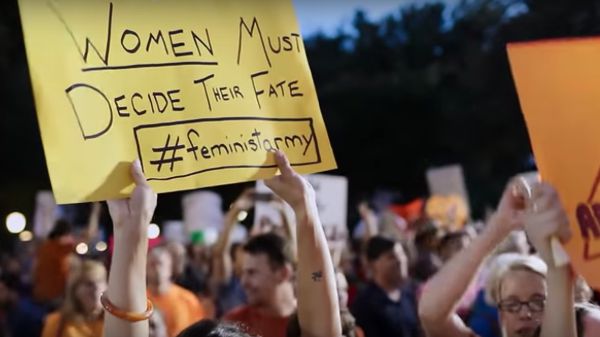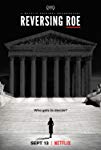Eye For Film >> Movies >> Reversing Roe (2018) Film Review
Reversing Roe
Reviewed by: Jennie Kermode

One of the most significant judicial decisions is US history, Roe vs. Wade, which came before the country's Supreme Court in January 1973, has been subject to challenge of one sort or another throughout its existence. Although it was originally conceived as a means of enshrining the right to abortion in the US constitution and therefore ending the continual back and forth in state courts, the fact that it could not immediately be subject to legal challenge inspired those who opposed it to try other methods, throwing their efforts into cultural change and also into shifting political values. Along the way, politicians discovered that the emotive power of the issue could be an invaluable campaigning tool, and several reversed their positions completely when it became useful for them to do so. Now, at a time when the future balance of the supreme court could be about to undergo a critical shift, documentary Reversing Roe looks at the dynamics of the matter.
Potential viewers should be clear from the start that this is not an attempt to analyse the moral rights or wrongs of abortion itself. Although we hear passionate arguments from both sides in that regard, they are made in passing; the focus is on history and on the legal and political issues involved. As it's really not difficult to find people discussing the subject emotively, this more structured approach makes for a more valuable film. It does, however, require that viewers start out with a bit of education on the subject, accept the medical facts as stated (which do fit the scientific consensus) or go and do a bit of research of their own after viewing - which doesn't amount to an unreasonable thing for a documentary to ask but won't appeal to everyone.

In the course of its telling, the film touches briefly on what happened to women before abortions were legally available in the US, and makes note of the importance of money and white skin as factors facilitating access, as well as acknowledging the geographical variation in service availability (it's left to the viewer to connect the two). It looks at the origins of the famous ruling and its relationship to the prior licensing of therapeutic abortion, at strategies used by those opposed to the practice and at key events in the struggle to defend it, such as the Wendy Davis filibuster. The final stages deal with expectations and concerns around the Trump era.
Covering a lot of ground in its 99 minute runtime, the film is a good introduction for anyone struggling to grasp the mechanisms involved in recent political and judicial dealings relating to this issue. It's also very effective in demonstrating the way that an issue not many people concern themselves with can come to dominate the political agenda if it's leveraged in the right way, and by doing so it casts light on the phenomenon of moral panic and the complexities of what lead us to consider something a moral issue in the first place. Perhaps most importantly, it seeks to bring in the voices of those seeking to get beyond the political noise and work towards a situation in which fewer people find themselves in need of abortion in the first place.
Reviewed on: 29 Sep 2018















